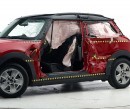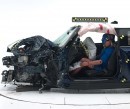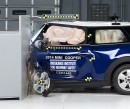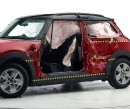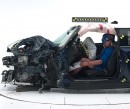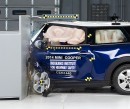Children continue to die in hot cars: in the U.S. alone, 39 have died so far this year. While the Hot Cars Act is pending approval in Congress, trade groups are joining forces to speed up the process and make the tragedies preventable.
The Alliance of Automobile Manufacturers (Ford, Fiat Chrysler Automobiles, General Motors, Jaguar Land Rover, Mazda, Mercedes-Benz, Mitsubishi, Porsche, Toyota, Volkswagen, Volvo) and the Association of Global Automakers (Honda, Hyundai, Kia, Nissan, Subaru) are saying that rear-seat monitoring systems will become standard in all vehicles sold in the U.S. by the model year 2025, Consumer Reports notes. The announcement doesn’t say which or how the technology will be used, but most importantly, the agreement will not be enforced through federal legislation.
“Under this commitment, automakers will innovate by introducing a wide range of approaches to help parents and caregivers remember to check the back seat as they leave a vehicle,” the statement says. “At a minimum, these prompts will include a combination of auditory and visual alerts that will activate after a driver turns off a vehicle.”
Safety organizations like CarsAndKids.org believe that more precise steps should be taken, including monitoring systems that would alert the driver of the presence of a child. As CR highlights, when a parent forgets a child in the locked, hot car, he or she has a memory lapse. No parent believes this could happen to them, so chances of them acting proactively and activate the rear-seat reminder are slim. For more efficiency, automakers should turn on the reminder system before the vehicle even leaves the factory.
Integrated reminder systems are a great first step, but automakers must not stop at that, the same organizations say. At the same time, federal legislation must exist to enforce the use of the life-saving technology.
Wade Newton, spokesman for the Alliance of Automobile Manufacturers trade group, says that the agreement is a time-saving alternative for the Hot Cars Act, though probably not a replacement. “A voluntary agreement is quicker than a rule-making process,” Newton says for Consumer Reports. “A federal rule-making at NHTSA can take five to eight years to be finalized, and that’s before the technology can even start rolling out.”
“Under this commitment, automakers will innovate by introducing a wide range of approaches to help parents and caregivers remember to check the back seat as they leave a vehicle,” the statement says. “At a minimum, these prompts will include a combination of auditory and visual alerts that will activate after a driver turns off a vehicle.”
Safety organizations like CarsAndKids.org believe that more precise steps should be taken, including monitoring systems that would alert the driver of the presence of a child. As CR highlights, when a parent forgets a child in the locked, hot car, he or she has a memory lapse. No parent believes this could happen to them, so chances of them acting proactively and activate the rear-seat reminder are slim. For more efficiency, automakers should turn on the reminder system before the vehicle even leaves the factory.
Integrated reminder systems are a great first step, but automakers must not stop at that, the same organizations say. At the same time, federal legislation must exist to enforce the use of the life-saving technology.
Wade Newton, spokesman for the Alliance of Automobile Manufacturers trade group, says that the agreement is a time-saving alternative for the Hot Cars Act, though probably not a replacement. “A voluntary agreement is quicker than a rule-making process,” Newton says for Consumer Reports. “A federal rule-making at NHTSA can take five to eight years to be finalized, and that’s before the technology can even start rolling out.”


